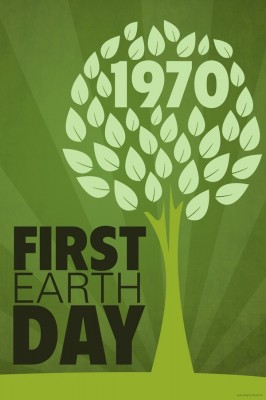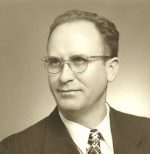April 22, 1970, was an important day in the nation’s history. It marked the first celebration of Earth Day — an event that put environmentalism front-and-center in American society.
With more than 20 million participants across the United States, Earth Day celebrations demonstrated the grassroots appeal of a clean and healthy environment at a time when the nation was caught up in cultural turmoil over civil rights and the Vietnam War.
 Thanks to this popular support, a surge of legislative proposals followed Earth Day 1970. Congress passed, and President Nixon signed into law, transformational legislation from critical amendments to the Clean Air Act to the National Environmental Policy Act, which established the Environmental Protection Agency.
Thanks to this popular support, a surge of legislative proposals followed Earth Day 1970. Congress passed, and President Nixon signed into law, transformational legislation from critical amendments to the Clean Air Act to the National Environmental Policy Act, which established the Environmental Protection Agency.
Despite the unifying nature of issues like clean air and clean water, Baptists in the South were slow to express environmental concern. While the nation was addressing the world’s exploding population and the potential for global food shortages, these Baptist leaders were more worried that evangelistic efforts were not keeping pace with the “soul explosion.” And when Ohio’s polluted Cuyahoga River caught fire (and the attention of the media) in 1969, Baptist leaders were focused on “moral pollution” in Hollywood.
Henlee Barnette took a different path. This pioneer Baptist ethicist was one of the first (and few) leaders in the nation’s largest Protestant denomination to be an advocate for environmental concern and action. Environmental issues were the almost exclusive focus of his research, writings and activism during the first years of the 1970s.
In 1970, Barnette helped a group of his students at Southern Baptist Theological Seminary in Louisville, Ky., form an “Ecoclub,” and he taught an ethics course on the ecological crisis, the first of its kind at any Baptist seminary in the South.
He also led his ethics students to participate in Earth Day 1970 and ensured that the inaugural event was observed in the seminary.
“We confess that we have not been good housekeepers of this lovely dwelling place,” Barnette prayed. “We have failed in our stewardship for we have fouled the air, poisoned the land and the lakes, and polluted the streams. … May this ‘Earth Day’ be the beginning of a sustained and concerted effort on the part of all of us to create a cleaner world so that future generations will enjoy the beauty of the Earth.”
In 1972, after a research sabbatical to study with renowned environmentalist Howard Thomas Odum at the University of Florida, Barnette published The Church and the Ecological Crisis. While most environmental theologians were writing primarily for other theologians, Barnette offered an accessible and concise ecological theology for all audiences.
His eco-theology rested on the belief that God is the creator and sustainer of the universe. The covenant between God and humanity extended to the rest of God’s creation, Barnette emphasized. “To mistreat the land is to break covenant with God and may cause him to withdraw his presence and providence,” he wrote.
Environmental action was central to Barnette’s eco-theology. In numerous denominational writings, he prescribed a long list of “personal ecotactics” such as recycling and lifestyle choices to limit waste and pollution. Barnette, however, insisted that personal ecotactics must be extended to social ecotactics such as political action. “For all the value in individual ecotactics, political action is necessary if the ecological problem is ever to be solved,” he wrote.
Barnette urged churches to begin educational programs, host seminars, participate in environmental organizations and take part in community clean-up projects. He called on churches to redefine their theology to “see love in terms of willing the welfare of all God’s creatures and things” and embrace an understanding of stewardship that “transcends giving a tithe faithfully and sees a responsibility to the whole earth.”

